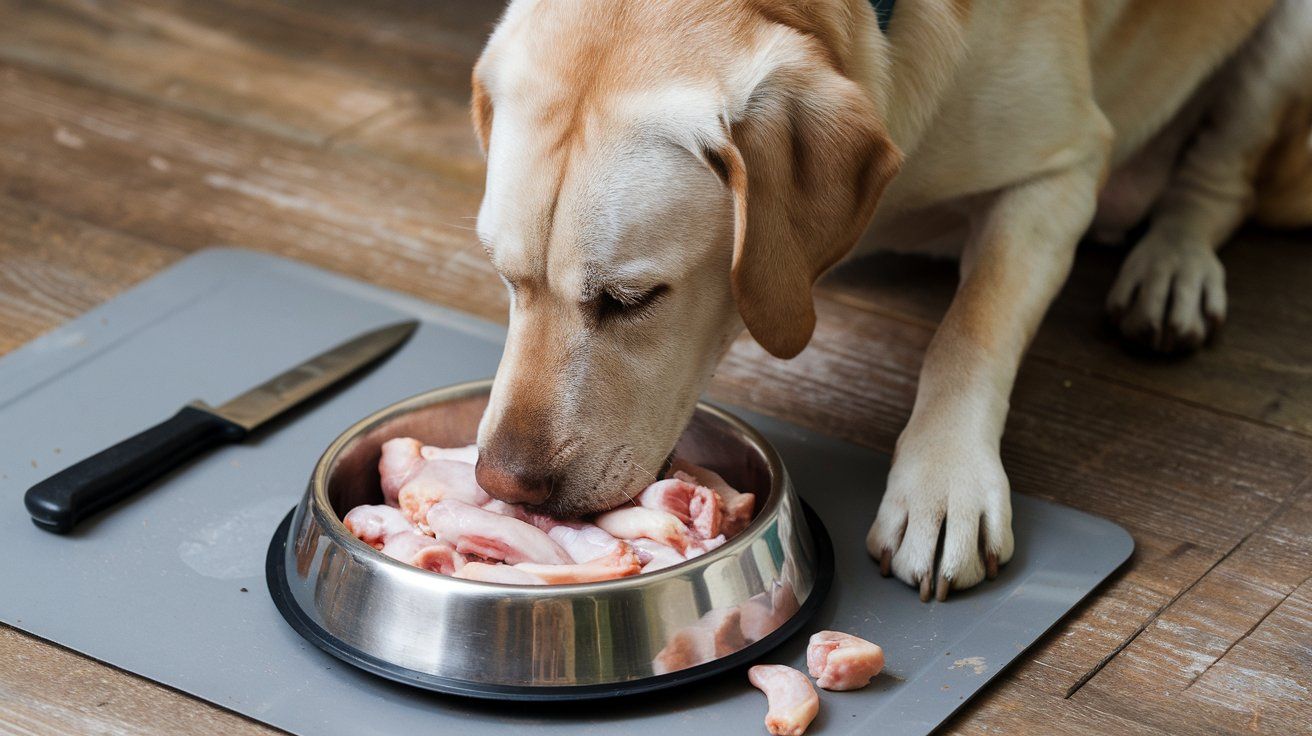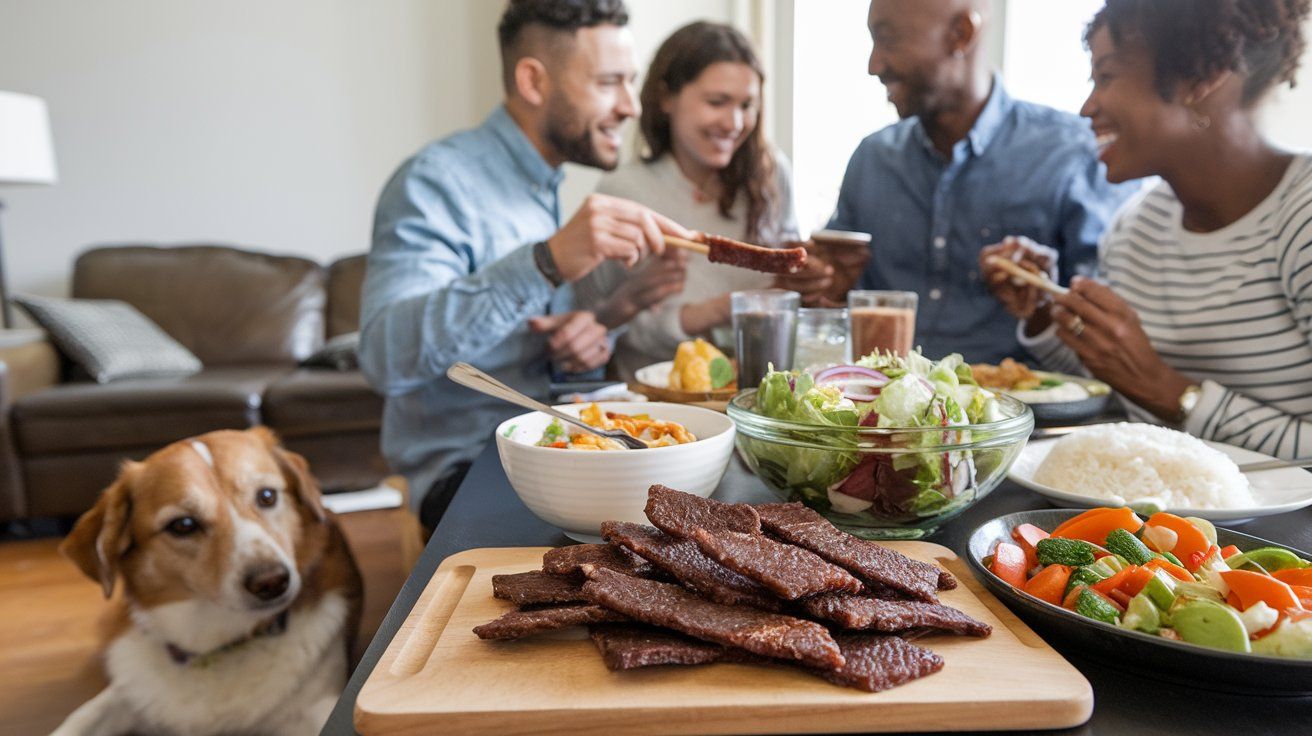Can Dogs Eat Smoked Meat?
No, it is generally not recommended to feed smoked meat to dogs due to its high fat and sodium content, which can lead to health issues such as pancreatitis and obesity. If you do choose to offer your dog smoked meat, ensure it is in small quantities and free from harmful additives like spices or sauces.
The Safety of Smoked Meat for Dogs
When considering whether dogs can eat smoked meat, it’s crucial to examine the safety of these foods for canine consumption. Not all smoked meats are created equal, and some can be harmful to dogs if not selected and prepared correctly. Typically, smoked meats are preserved and flavored with various seasonings, including salt and spices, which can pose health risks to pets.
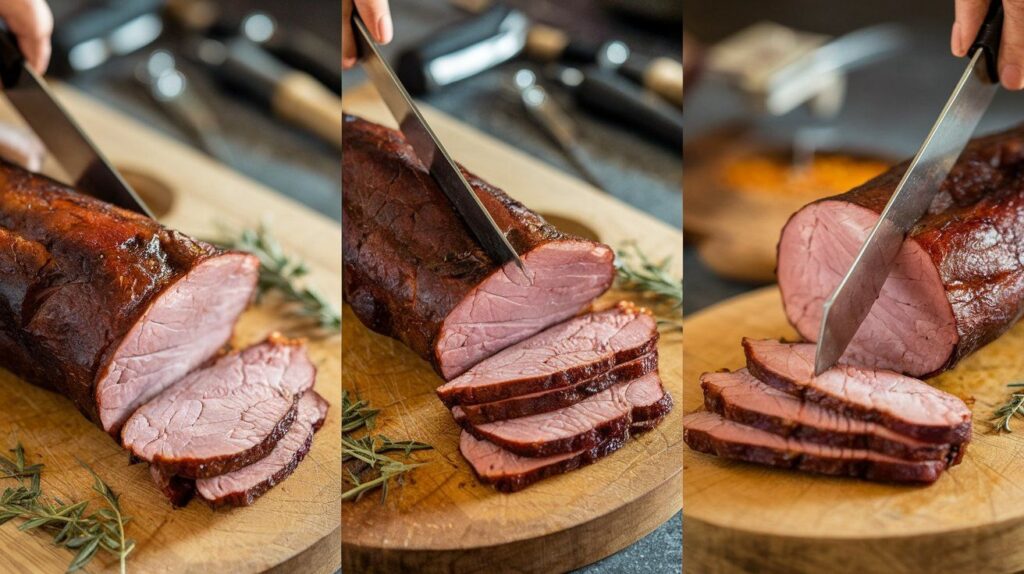
Understanding Smoked Meats
Smoked meats are treated with smoke from burning wood, which imparts flavor and helps preserve. However, this process also involves using additives like sodium and sometimes sugar, which are not ideal for dogs. High sodium content can lead to dehydration and sodium ion poisoning in dogs, exhibiting symptoms like vomiting, diarrhea, and even seizures in severe cases.
Ingredients to Avoid
It’s also important to be wary of smoked meats that contain spices or garlic and onion powders, as these are toxic to dogs. The key is to choose plain smoked meats with no added sauces or seasonings and low-fat content to avoid causing pancreatitis or gastrointestinal upset.
Focusing on high-quality, plain smoked meats and ensuring they are low in sodium and fat allows you to safely occasionally include small amounts of these treats in your dog’s diet. Always check with your veterinarian before introducing new foods to your dog’s diet to ensure they are safe and appropriate for your specific pet.

Benefits of Smoked Meat for Dogs
While it’s essential to approach the topic of smoked meats cautiously, there are some potential benefits when they are chosen and served correctly. Smoked meats can provide nutritional and sensory advantages for dogs, making them an enjoyable addition to their diet on special occasions.
Nutritional Advantages
Protein is a crucial component of a dog’s diet, and smoked meats can be an excellent source of this vital nutrient. High-quality smoked meats, particularly those made from lean cuts, offer good protein, essential for muscle development and maintenance. Additionally, smoking meat can help retain certain nutrients that might otherwise be lost in other cooking methods.
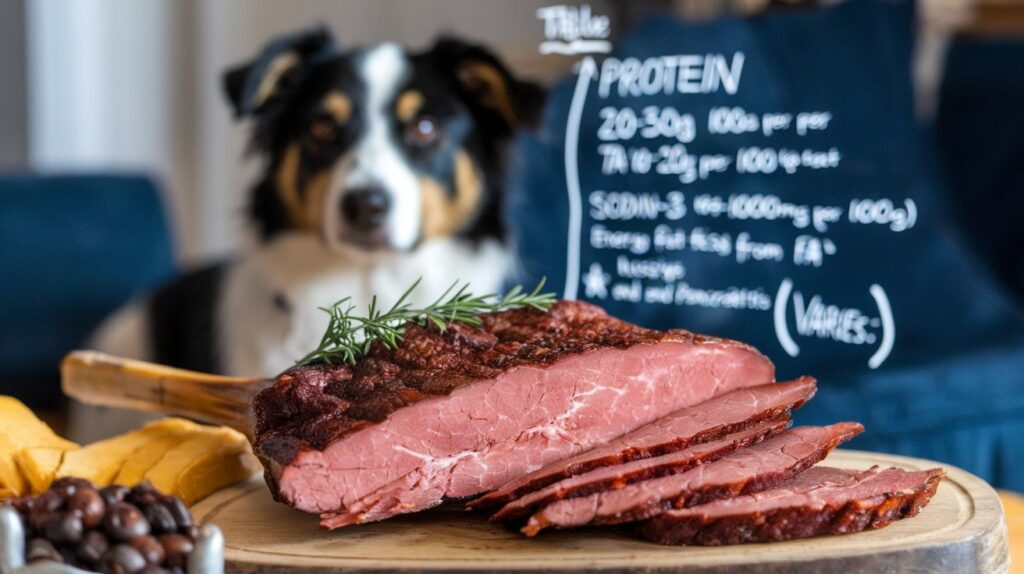
Here’s a table summarizing the nutritional advantages and potential risks of feeding smoked meat to dogs,
| Nutrient | Amount per 100g | % Daily Value per 2000 Cal* | Benefits | Source |
|---|---|---|---|---|
| Calories | 210 kcal | 10.5% | Provides energy | Eat This Much |
| Protein | 20g | 40% | Supports muscle growth and repair | Eat This Much |
| Fat | 12g | 18% | Essential for hormone production and energy | Eat This Much |
| Carbohydrates | 2g | 1% | Provides a small amount of energy | Eat This Much |
| Sodium | 800mg | 33% | Helps maintain fluid balance and nerve function | Eat This Much |
| Iron | 2.7mg | 15% | Supports oxygen transport in the blood | Eat This Much |
| Potassium | 250mg | 7% | Helps regulate fluid balance, muscle contractions, and nerve signals | Eat This Much |
*Percent Daily Values are based on a 2,000-calorie diet.
For more detailed studies and information, you can visit the Eat This Much in the table.
Sensory Stimulation
The aroma and taste of smoked meat are often much more appealing to dogs than their regular kibble. Offering a small piece of smoked meat can be a great way to entice a picky eater or to provide a high-value reward during training sessions. Chewing on tough meats can also help maintain dental health by reducing plaque and tartar buildup.
Mental Engagement
Introducing new flavors and textures into a dog’s diet can stimulate their senses and provide mental enrichment. This is especially beneficial for older dogs or those who may not get as much physical exercise. Smoked meats can add an exciting variety to their meals, keeping them engaged with their food.
Risks Associated with Smoked Meat for Dogs
While smoked meat can benefit dogs, as discussed previously, significant risks need careful consideration. If not properly managed, these risks can impact a dog’s health.
High Sodium and Fat Content
One of the primary concerns with smoked meats is their high sodium content. Dogs have a much lower tolerance for salt than humans, and excessive salt intake can lead to sodium ion poisoning. Symptoms can include excessive thirst and urination, vomiting, diarrhea, and, in severe cases, convulsions and death. Additionally, smoked meats often contain higher fat levels, which can be difficult for dogs to digest. Frequent consumption of fatty foods can lead to pancreatitis, a severe condition that causes inflammation of the pancreas and can be life-threatening.

Risk of Seasonings and Additives
Many smoked meats designed for human consumption are enhanced with seasonings like Tajín, which combines chili peppers, salt, and dehydrated lime juice. While many people love these flavors, ingredients such as chili and other spices in Tajín can cause significant gastrointestinal irritation in dogs, potentially leading to more severe health issues like red blood cell damage. It’s crucial to ensure that any smoked meat you consider feeding your dog is free from these harmful additives to prevent any adverse effects on your pet’s health. This vigilance is essential when introducing new elements to your dog’s diet, especially those commonly seasoned for human tastes.
Choking Hazards and Bone Fragments
Smoked meats that contain bones pose a significant choking hazard to dogs. Bones can also splinter and cause blockages or tears in the digestive tract. Even if the smoked meat is boneless, cutting it into appropriate-sized pieces is essential to prevent choking.
Best Practices for Mitigation
To mitigate these risks, always choose smoked meats prepared explicitly for dogs or known to be plain and low in sodium and fat. Always consult your vet before introducing smoked meats into your dog’s diet, particularly if your dog has preexisting health conditions or dietary restrictions.
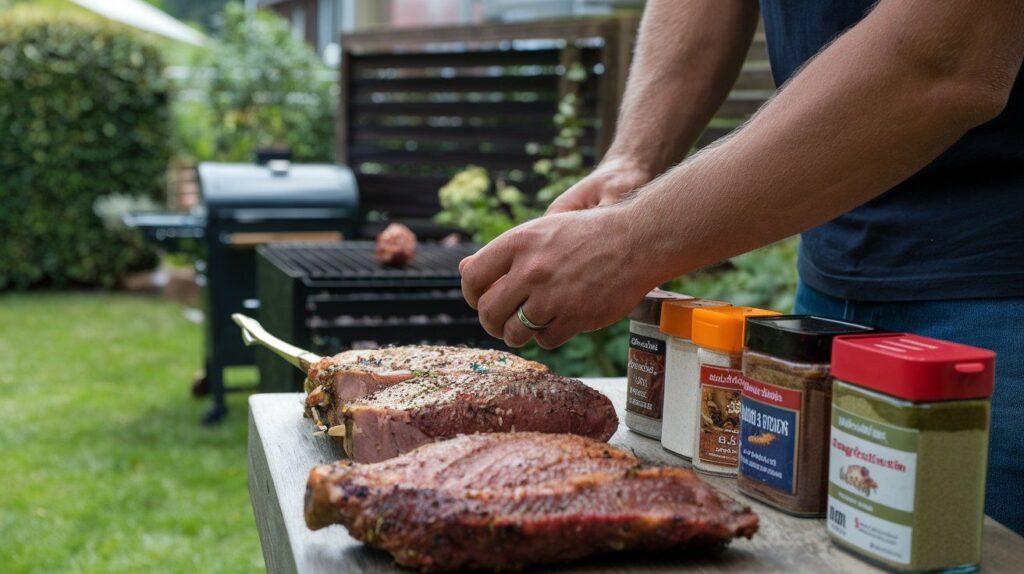
How to Prepare and Serve Smoked Meat Safely to Your Dog
Ensuring that smoked meat is safe for your dog involves careful preparation and attention to detail. Here are some guidelines to help you safely introduce smoked meat into your dog’s diet without exposing them to potential health risks.

Choose High-Quality, Plain Smoked Meat
Opt for high-quality smoked meats low in fat and sodium and free from harmful seasonings and additives. Look for products or prepare homemade smoked meat that does not contain garlic, onions, or heavy spices, which are toxic to dogs. If possible, select meats specifically labeled as safe for canine consumption.
Proper Preparation is Key
Before serving smoked meat to your dog, it’s essential to prepare it to minimize any health risks properly:
- Remove all bones: Bones can splinter and cause choking or severe internal injuries. Always ensure the smoked meat is wholly deboned.
- Trim the fat: Excess fat can cause indigestion and lead to pancreatitis in dogs. Trim off any fatty portions before offering the meat to your dog.
- Cut into appropriate-sized pieces: To prevent choking cut the smoked meat into small, manageable pieces suitable for your dog’s size.
Moderation is Crucial
Smoked meat should be treated as a special treat, not a regular part of your dog’s diet. Limit the frequency of smoked meat treats and only offer them in small quantities. It’s a good rule of thumb that treats should not make up more than 10% of your dog’s daily meal.
Monitor Your Dog’s Reaction
After introducing smoked meat, closely observe your dog for any signs of digestive distress or allergic reactions. Common signs to watch include vomiting, diarrhea, lethargy, or changes in appetite. If you notice any adverse effects, discontinue feeding smoked meat and consult your veterinarian.
Consult Your Veterinarian
Always discuss new additions to your dog’s diet with your veterinarian, especially when they involve rich foods like smoked meat. Your veterinarian can provide personalized advice based on your dog’s health, weight, and nutritional needs.
Healthy Alternatives to Smoked Meat for Dogs
While smoked meat can be a tasty treat, balancing your dog’s diet with safer and healthier alternatives is important. These options can provide similar enjoyment without the risks associated with smoked meat.
Fresh Cooked Meats
- Chicken, Turkey, and Lean Beef are excellent protein sources and can be cooked without added fats or harmful seasonings. While fresh meats like these are generally safer and easier on your dog’s digestive system than smoked meats, it’s essential to ensure all meat is thoroughly cooked and free from bones before serving to your dog. Specifically, raw chicken bones can be dangerous as they might splinter and cause choking or severe internal injuries. Therefore, always serve these meats bone-free and well-cooked to avoid any health risks to your dog. This careful preparation helps maintain the nutritional integrity of the meat while ensuring safety.
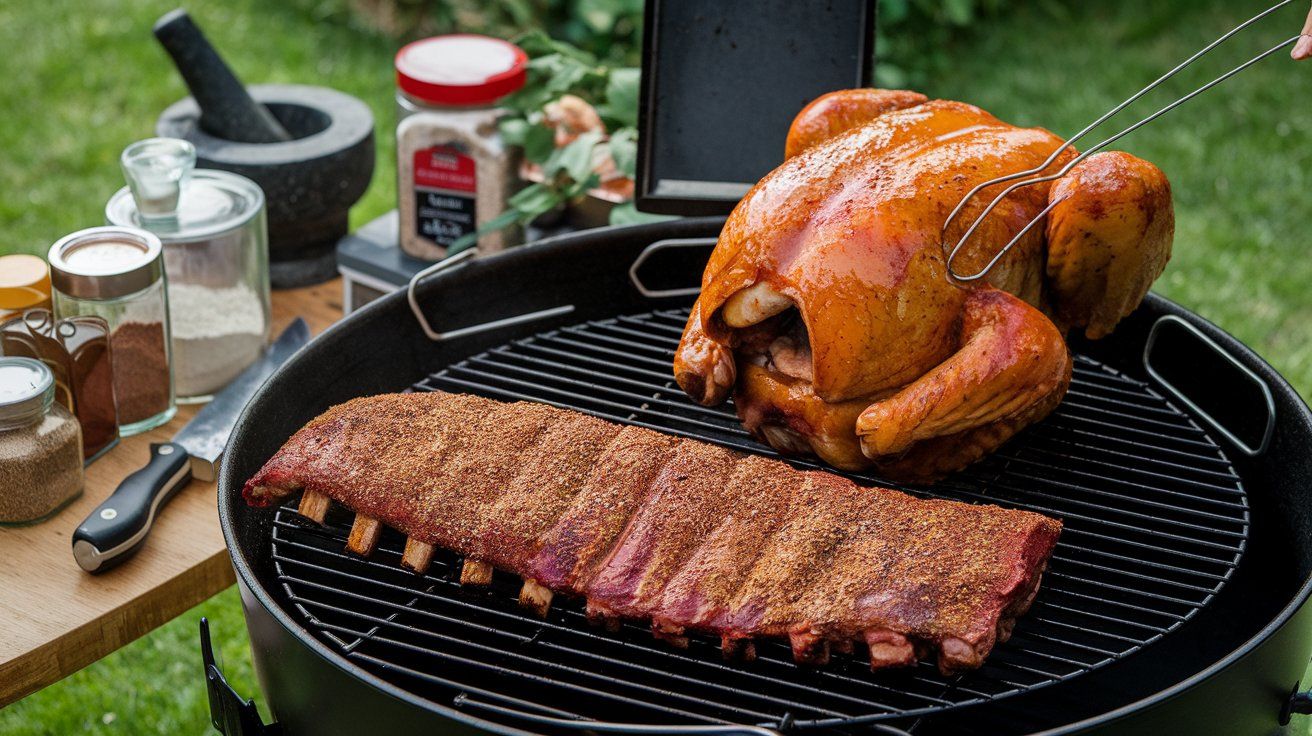
Commercially Prepared Dog Treats
- High-Quality Commercial Treats: Look for treats made with real meat and minimal additives. These are specifically formulated to be safe and appealing for dogs, often mimicking the flavors dogs love without the health risks.
Specialized Dog Diets
- Prescription or Veterinary Diets: For dogs with specific health issues, consider specialized diets recommended by your veterinarian. These diets are tailored to address health concerns such as kidney health, digestive problems, or allergies and can include safe meat options that are prepared to suit sensitive dogs.
Homemade Dog Food
- Home-Cooked Meals: When preparing homemade meals for your dog, you ensure control over the ingredients, opting for lean meats, healthy vegetables, and safe grains. This method significantly reduces the sodium and additives found in processed foods. However, avoid incorporating raw beef fat, which can be difficult for dogs to digest and may lead to health issues like pancreatitis. Always trim excess fat and cook the beef thoroughly to maintain nutritional benefits and safety.
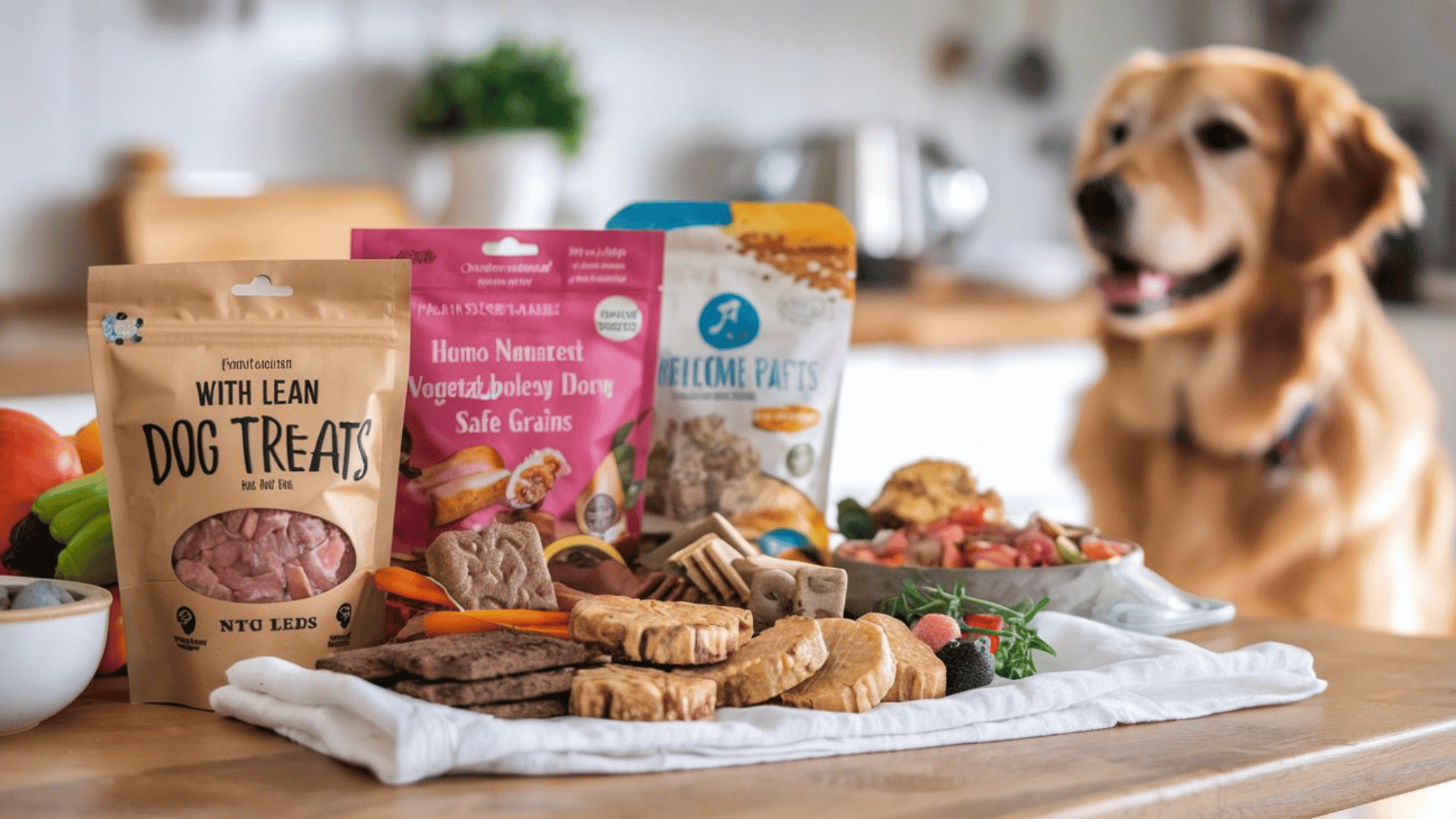
Raw Diets
- Raw feeding: Under a vet’s guidance, it provides essential nutrients and proteins without the risks tied to cooked bones or high-fat content. Avoid freezer-burned meat in your dog’s diet, as it can lessen nutritional value and taste, possibly causing your pet to reject the food or experience digestive issues. Always prioritize fresh, quality meat for optimal health benefits.
Vegetarian Options
- Safe Vegetables and Fruits: Some dogs enjoy vegetables and fruits as treats, which can be a low-calorie, healthy alternative to meats. Options like carrots, green beans, apples, and blueberries are often safe for dogs, but always check with your vet, as some fruits and vegetables can be toxic.

Frequently Asked Questions (FAQs)
This section addresses some of dog owners’ most common questions about feeding their pets smoked meat, providing clear and concise answers based on current veterinary advice and nutritional guidelines.
Can dogs eat smoked meat without risks?
Answer: Dogs can eat smoked meat, but it should be done in moderation and caution. The meat should be plain, low in fat and sodium, and free from harmful additives like onion or garlic. Always introduce any new food, including smoked meat, into your dog’s diet gradually and under close observation for any adverse reactions.
What are the best types of smoked meat for dogs?
Answer: The best types of dog-smoked meat are low in fat and sodium and have no added spices or flavorings. Options like smoked turkey or chicken breast are typically safer than red meats. Ensure the smoked meat is boneless and adequately prepared to avoid health hazards.
How often can dogs have smoked meat?
Answer: Smoked meat should only be offered as an occasional treat, not a regular part of your dog’s diet. Treats, including smoked meat, should comprise no more than 10% of the dog’s total daily caloric intake. Overfeeding smoked meat can lead to health issues such as obesity and digestive problems.
Is smoked meat better than cooked meat for dogs?
Answer: Cooked meat is generally safer and healthier for dogs than smoked meat. Cooking meat without added fats or harmful seasonings allows for better control over the ingredients and reduces the risk of introducing excessive sodium or potential toxins into your dog’s diet.
Can all dogs eat smoked meat?
Answer: Not all dogs should eat smoked meat. Dogs with health conditions like pancreatitis, kidney disease, or dietary sensitivities may be more adversely affected by smoked meat. It’s essential to consult with your veterinarian before introducing smoked meat or any new food into a dog’s diet with health issues.
Can dogs eat brisket?
Answer: According to vets, the brisket itself is not toxic to dogs; it’s generally not recommended as a regular part of their diet. If a dog eats brisket, especially in small amounts, there typically aren’t serious issues. However, due to its high-fat content, there is a risk of gastrointestinal upset or more serious conditions like pancreatitis. If your dog has eaten brisket, it’s important to monitor for any signs of digestive distress. Occasional small amounts might not cause harm, but it’s crucial to ensure the brisket is plain and well-cooked, avoiding any spices or seasonings that could be harmful.


